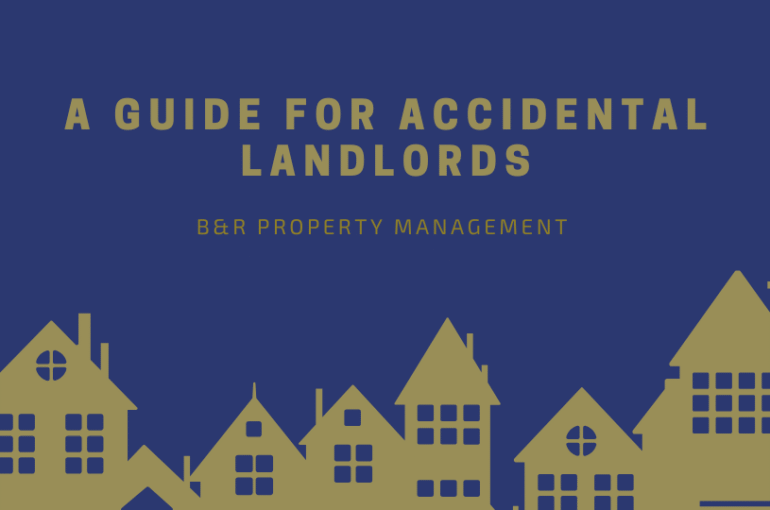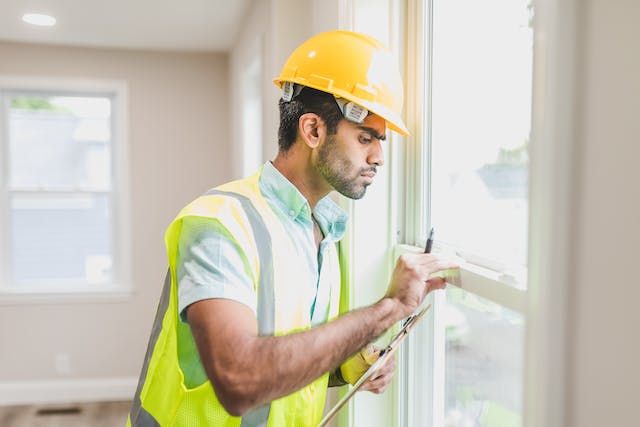A Guide for Accidental Landlords
A Guide for Accidental Landlords

Key Takeaways
- Know your legal responsibilities – Create a clear lease, follow Nevada landlord-tenant and Fair Housing laws, and ensure your unit is safe and habitable before renting.
- Set competitive rent and market wisely – Research local rents, factor in expenses, and advertise with accurate photos and descriptions while complying with Fair Housing rules.
- Screen tenants and manage finances carefully – Run background and credit checks, verify income, and keep detailed financial records to stay compliant and maximize deductions.
- Protect and maintain your property – Respond quickly to repairs, maintain good tenant communication, and secure proper landlord insurance for financial protection.
Did you know that many apartment landlords did not plan to become landlords at all? People often find themselves renting out an apartment they once lived in, inherited, or could not sell.
This unexpected situation can be stressful, especially when you are unsure about the rules, costs, and daily tasks that come with managing a rental property.
To help you understand what to do next, B&R Property Management put together this article to guide accidental landlords in Nevada.
Understanding Your Legal Responsibilities
Before you rent out your apartment, you must understand your legal duties as a landlord.
In Nevada, landlords must follow federal laws such as the U.S. Department of Housing and Urban Development’s Fair Housing rules.
These laws prevent discrimination based on race, color, religion, sex, national origin, disability, and family status.
It is also important to create a written lease agreement. A lease should include the rent amount, due date, length of the lease, security deposit, and the tenant’s and landlord’s responsibilities. Clear agreements can help prevent future disputes.
Preparing Your Apartment for Rent
Your apartment must be safe and habitable before a tenant moves in. This means checking that all plumbing, electrical systems, heating, and cooling work properly.
Install working smoke detectors and carbon monoxide alarms as required by Nevada law. Make sure all doors and windows lock securely.

Repair any damage and clean the apartment thoroughly. Decide if you want to offer it furnished or unfurnished. If the unit is part of a condo building, check the homeowners association (HOA) rules to confirm you are allowed to rent it out and if there are special requirements for landlords.
Setting the Right Rent Price
Pricing your apartment correctly is important. Rent that is too high may leave your apartment vacant, while rent that is too low could hurt your income.
Look at similar apartments in your building or neighborhood to see what they are charging. Factor in your mortgage, property taxes, HOA fees, and insurance costs. Make sure your rent covers these expenses and still gives you a profit.
Nevada does not have statewide rent control, so you can set the rent based on market demand. Still, rent increases during lease renewals must follow notice requirements under state law.
Marketing Your Apartment
Once your apartment is ready and priced, you need to find tenants. Create a listing with clear photos and an accurate description.
Include the monthly rent, size, number of bedrooms and bathrooms, parking options, and key amenities. Be honest and specific to attract serious applicants.
You can advertise your apartment online or through local community boards. When marketing, follow Fair Housing advertising rules and avoid any language that could be seen as discriminatory.
Screening Tenants Carefully
Choosing the right tenant is one of the most crucial steps. Require all applicants to fill out a rental application. Conduct a background and credit check with their written permission.

This can help you confirm their payment history and any past evictions. Verify their income and employment to be sure they can afford the rent. Contact their previous landlords to ask about their rental history.
Screen all applicants equally using the same criteria. This helps you stay compliant with Fair Housing laws and reduces the risk of discrimination claims.
Managing Finances and Taxes
Being a landlord means keeping good financial records. Track all rent payments, repair costs, utility bills, and other expenses related to the apartment. Use a separate bank account for rental income to make accounting easier.
Rental income is taxable. The Internal Revenue Service requires you to report it on your annual tax return.
You may be able to deduct expenses such as mortgage interest, property taxes, insurance, repairs, and depreciation. Because tax rules can be complex, consider hiring a tax professional to help you comply with federal and Nevada state tax laws.
Maintaining the Apartment and Tenant Relations
After your tenant moves in, you are responsible for keeping the apartment in good condition.
Respond to repair requests quickly and perform routine maintenance, such as servicing the heating and air conditioning systems. Nevada law requires landlords to make timely repairs to keep the property habitable.
Good communication helps maintain a positive relationship. Provide tenants with clear contact information and respond to messages promptly.
Schedule regular inspections with proper notice. When the lease is ending, discuss renewal or move-out plans early to avoid gaps in rental income.

Insurance and Risk Management
Standard homeowners insurance does not cover rental activities. You need landlord insurance to protect your property and yourself from liability.
Landlord policies usually cover the building structure, loss of rental income due to covered damage, and liability if a tenant or guest is injured on the property. You can also require tenants to carry renters insurance to protect their personal belongings and cover their own liability.
Deciding Whether to Continue or Exit Landlording
Being an accidental landlord might not be a long-term plan. After your first lease ends, review your experience. Think about the income you earned, the time you spent on management tasks, and any problems that came up.
If renting your apartment fits your financial goals, you might continue. If it feels overwhelming, you could hire a property management company or sell the apartment. If you sell, consider the tax impact, such as capital gains tax.
Bottom Line
Becoming an accidental landlord can feel challenging at first, but it can also become a reliable source of income.
By understanding your legal responsibilities, preparing your apartment properly, keeping good financial records, maintaining your property, and protecting yourself with the right insurance, you can manage your apartment effectively.
B&R Property Management can help with every step of this process. Our team handles marketing, tenant screening, lease agreements, rent collection, maintenance, and more for apartment landlords across Nevada.



